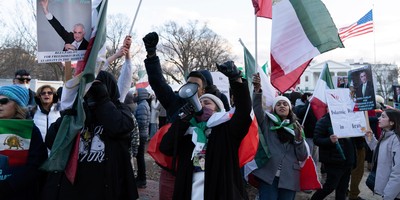The crime of human trafficking is now the world’s second most prevalent crime (behind drug trafficking). According to Kevin Bales, Disposable People, there are more sex slaves today than there were slaves in the 19th century. Sex trafficking is, in many respects, worse than drug trafficking because drugs can be sold only once, but those who are trafficked can be sold repeatedly, often twenty to thirty times a day. Further, the criminal networks who offer children and women as sexual commodities, and those who purchase their sexual services are highly unlikely to get caught. If they do, they are even less likely to be prosecuted. Sex trafficking is one of the few crimes where the victim is the one who is arrested and prosecuted.
President George W. Bush made it a priority to end human slavery by establishing the Office to Monitor and Combat Trafficking in Persons (TIP) in the United States State Department, encouraging the passage of the Trafficking Victims Protection Act (TVPA), and using his bully pulpit to urge the eradication of “modern-day slavery.” As a result, the United States is the world leader in addressing the scourge that ensnares hundreds of thousands of vulnerable children and women.
The original TVPA’s emphasis on ending the demand for prostituted women and children put the focus where it belonged, on the criminals and johns who were bringing in over $10 billion a year by using human beings as commodities. In other words, the legislation focused on punishing pimps, not arresting prostitutes. Each reauthorization of the TVPA tightened gaps in victim protection, perpetrator prosecution and domestic and international efforts to abolish the slave trade. This year’s TVPA is historic legislation that would greatly strengthen anti-trafficking efforts; it passed the U.S. House of Representatives by a vote of 405-2.
Sadly, when the bill went to the Senate, several factions (including, amazingly, the Department of Justice) succeeded in gutting the House bill. Ultimately, the Senate version of the legislation (S. 3061) contains major problems:
The definition of prostitution: The Senate bill defines prostitution as a form of “labor or services,” making the relationship between a pimp or trafficker and a prostituted person normative, just another employer and employee. Prostitution, then, is a legitimate career option for girls and women. The Department of Justice even uses the term “labor or services” in their flawed Model Law. The House bill maintains the critical distinction established in the TVPA of 2000 between commercial sex acts and the performance of “labor or services.” Supporters of legalized prostitution favor the “labor or services” definition. Abolitionists view prostitution and sex trafficking as destructive and enslaving problems — a human rights issue for women.
Recommended
Attitudes toward prostituted women: Considering that the average age of entry into prostitution in the United States is 12-14 years old, the House bill and abolitionists recognize that requiring proof of force, fraud or coercion in cases involving prostituted adults is a very high burden of proof and the burden falls on the victim. Prostituted minors are de facto trafficking victims, but victims not identified until after age 18 are often so scared or traumatized that they will not testify against their pimps and traffickers. The House bill and abolitionists consider the proof of force, fraud and coercion to be a means of enhancing punishment of the traffickers but not a baseline for prosecution. Further, they argue that the burden of proof must be removed from victims of trafficking and placed on the pimps and traffickers. The Department of Justice (DOJ) opposes this, and the Senate bill does not have this provision.
Exploiting illegal aliens: The House bill makes trafficking in illegal aliens a per se crime by eliminating the requirement that prosecutors prove the trafficker caused the illegal alien to come to the United States. This closes a loophole that allows traffickers to say they were not the person who brought the victim into the country. The Senate bill excludes this provision and the DOJ opposed the House provision.
Sex tourism: The House bill includes a maximum sentence of 30 years for promoting sex tourism with minors and holds sex tour operators accountable for perpetuating the demand for sex tourism. The Senate bill does not include the enhanced sentence for sex tourism involving minors, and it bars prosecutions of sex tour operators if the tours promote commercial sex acts that are legal in the destination country. The DOJ opposes the House provision.
Sex trafficking of minors: The House bill codifies the decisions of six circuit courts that authorize the conviction of sex traffickers without proof that the trafficker knew the victim was a minor. The Senate bill uses the “reckless disregard” standard for proof, which is higher and still allows a trafficker to claim they did not know the victim was a minor. The DOJ opposes the House provision.
Coordination of anti-trafficking programs and worldwide efforts: The House bill charges the TIP office with the responsibility for coordinating anti-trafficking programs and evaluating various nations’ efforts at eradicating human trafficking. The central point of accountability is vital to the success of anti-trafficking efforts. The Senate bill leaves the TIP office with little authority for continuing their strong record of anti-trafficking programs.
America’s leadership role in combating human trafficking is threatened by the Senate version of the TVPA. Those Senators who care about the scourge of sex trafficking will see that the provisions of the House bill prevail so that vulnerable girls and women are protected from the predators who exploit any legislative and legal loophole to get rich through modern-day slavery.

























Join the conversation as a VIP Member